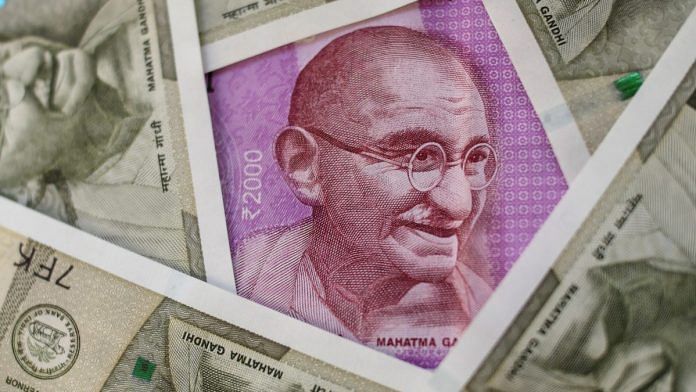It took a pandemic to make millennials finally sit at home and save some money. But are we merely itching for the lockdown to end to resume splurging on eating out and going on Instagram-worthy vacations? Or will the anxiety around the coronavirus-caused recession propel us towards becoming risk-averse supersavers?
Millennials are notorious for not saving up for homes, or retirement, and not investing enough in their futures. They have been blamed for things like the automobile sector slump because, it is said, they are only interested in spending money on service-oriented things like food and travel.
But after this unprecedented global crisis that has resulted in an immediate shift in consumer behaviour, maybe this generation will dramatically change the way it thinks and feels about money.
Also read: Lakshman rekha between covidiot and coronapocalypse. Pandemic brings a new language in town
Covid’s impact on economy
A cursory glance at how coronavirus is impacting the economy is enough to make even the most financially prudent young person worried.
The IMF has declared that a recession worst since the Great Depression is ahead of us, and the World Bank has projected India’s growth for FY21 between 1.5 and 2.8 per cent, after an already slow last year.
Many critiqued millennials for how they initially reacted to the Covid-19 outbreak, be it continuing to crowd bars and ignore their potential as carriers of the virus, the boomer remover jokes, corona house parties or treating the slashed travel fare as an opportunity for cheap vacations — remember the “here for a good time, not a long time” memes.
So could we blame anyone for thinking that millennials might come out of this lockdown with a more YOLO (you only live once) attitude, the urge to quit their jobs, travel the world and tick everything off their bucket lists? Life is clearly too short, right? After all, Generation Z was born into fears of the planet coming to an end because of climate change. This played on any notion of future they had.
But my bet is that we might come out of this pandemic more scared and prudent than ever. We are not checking our bank balances today to ascertain how we can afford that designer outfit, or that gorgeous Airbnb rental, but to see whether we will be able to pay the rent for the next few months. Those who still have jobs are immobilised by fear that they might lose them any day, with every pay cheque delivered on time, without any deduction, feeling like a blessing now.
Also read: Limit reading news during Covid-19 lockdown, say mental health experts
Career choices to future savings
Perhaps, it is also a time to introspect deeply about our career choices. Are the sectors that we work in recession-proof enough? Is it too late to change? Manufacturing, retail and service industries, which include hospitality and restaurants, are projected to take the biggest hits, but even more white collar jobs in technology, legal services or marketing are also facing layoffs and furloughs.
The gig economy, which so many millennials prefer because of the flexibility it provides, is facing huge income losses too, along with the realisation that flying solo doesn’t come with benefits like severance or health insurance. Turns out that the hustle-and-work-till-you-drop culture that our generation has adopted may not work for us in the long run.
Considering that about 66 per cent of millennials have nothing saved for retirement, and home ownership is a far-off dream for many in their 20s and even 30s, thinking long term has not been our strong suit. The next few months will reveal if all this will change.
Finance minister Nirmala Sitharaman had famously blamed millennials in September 2019 for supposedly ruining the automobile sector by preferring to take Ola and Uber rides instead of “buying” cars.
Will she blame us once again when we tighten our purse strings, waiting for the worst to come? Perhaps. But we couldn’t care less, we have our future to take care of.
Views are personal.




I think the word “blame” is inappropriate. It was an “observation” about the spending pattern.
Doom is postponed by lock downs for every one, millennials no exception.
This article is meant to shoot over the shoulder of millenials, the same fallacy that the author tries to portray and attribute to the FM.